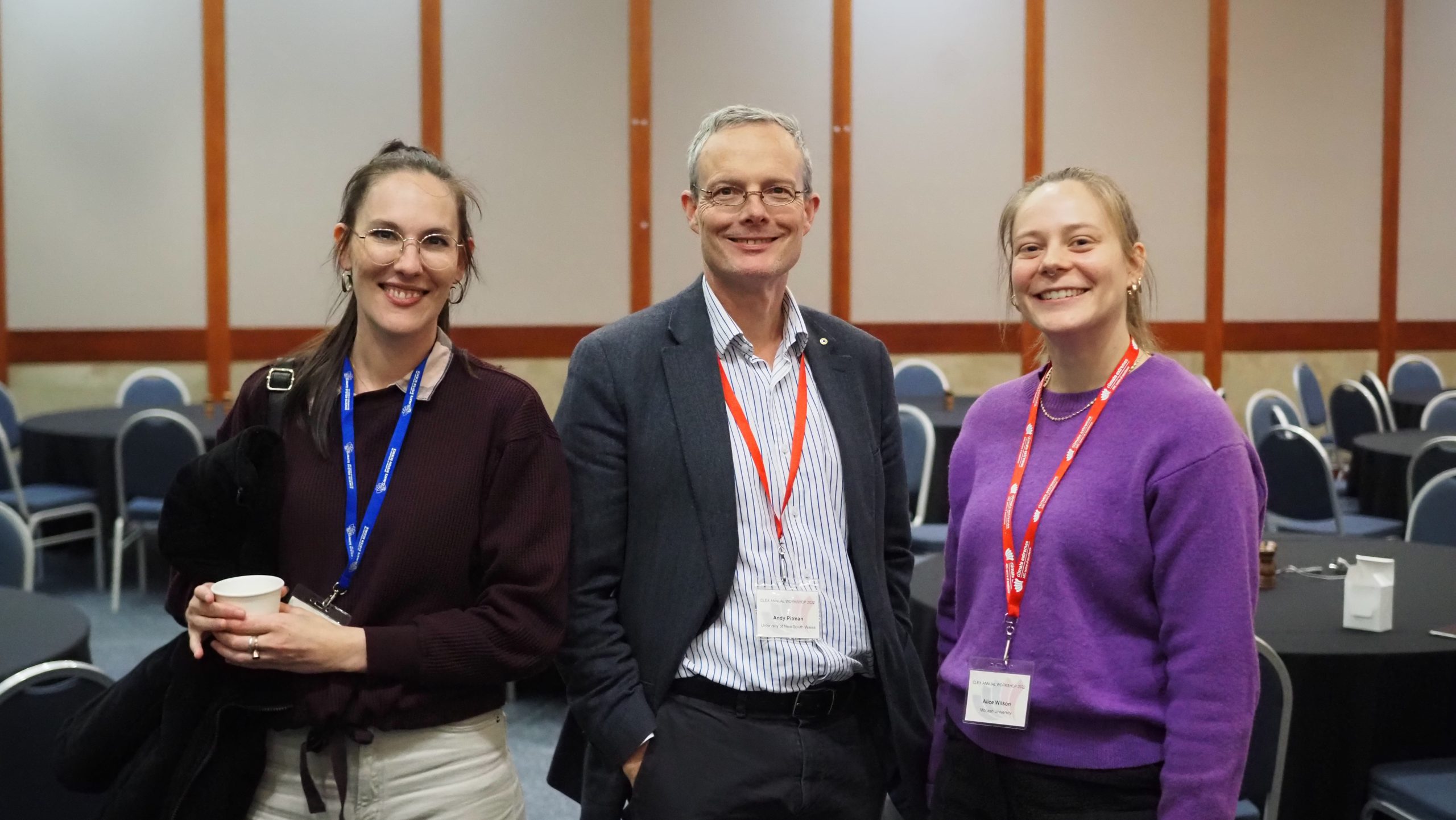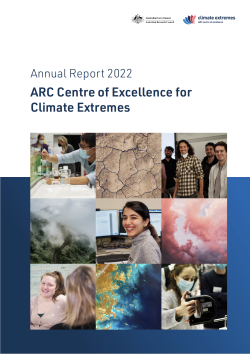
Two years ago I began my Director’s Report with comments focused on a summer of bushfires, drought, extreme rainfall, hail and dust storms all in one day. I write this report in the context of some of the worst flooding in Australia’s history, some quite phenomenal rainfall statistics in Queensland, but with a waning La Niña. The climate is truly remarkable.
This annual report explores activities within the Australian Research Council (ARC) Centre of Excellence for Climate Extremes through 2022 and highlights major progress in all elements of the Centre’s agenda. Amongst the major highlights, many relate to external impact and engagement. Our The State of Weather and Climate Extremes 2021 report was widely read and referenced, including by the federal Department of Climate Change, Energy, the Environment and Water and by the Government of New South Wales. The Climate Change Authority sought input from the Centre to expand on this report, which was provided to and ultimately acknowledged by the Honourable Chris Bowen, Minister for Climate Change and Energy. I want to thank the Centre’s research fellows who led virtually all the writing around the State of Extremes report.
We contributed to Australia’s 8th National Communication on Climate Change to the United Nations Framework Convention on Climate Change. Centre research was widely reported to the United Nations via this Commonwealth activity. The Centre made multiple submissions to inquiries and was instrumental in the 2022 NSW Independent Flood Inquiry, providing targeted analyses of the causes of the flooding. Our researchers also made submissions to the Environmental Protection and Biodiversity Conservation Amendment (Climate Trigger) Bill 2022. We have provided multiple briefings to parliamentarians, to the Department of Prime Minister and Cabinet, the Department of Foreign Affairs and Trade, the Office of National Security and various state departments.
We have also been active in supporting the use of climate science by institutions and industry. This includes work on Christmas and Norfolk Islands and multiple initiatives across the Pacific and the Australian agricultural industry. We are also engaging with the federal government’s efforts around the National Partnership for Climate Projections, which is an ongoing effort to better connect those working in climate modelling and climate futures.
In 2022 we have advised the business community on how to manage climate risk, including briefings to the US Securities Exchange Commission, the Australian Prudential Regulation Authority, the US Federal Reserve, the Monetary Authority of Singapore, UBS and many others. Meetings with Treasury have highlighted the types of modelling available to assess financial risk. Our Engagement and Impact team led a sustained communications strategy coincident with COP27 via tweets and LinkedIn posts, further raising our profile with the business community.

Our science continues to be published in elite international journals. The Centre published 207 papers in 2022, including 20 papers in Nature or Science family journals. Overall, 17.6 percent of our papers in 2022 are among the 10 percent of most-cited papers in the world, according to SciVal. The number and quality of our publications is not by chance: It reflects well on the training provided through our Graduate Program. Choosing highlights from such a large number of papers is not appropriate in my report – after all, how does one choose one or two papers from more than 200. However, our courageous research program leads have been braver and have selected particularly interesting or impactful papers, which are reported on later.
What I can celebrate here is an impressive collection of awards and prizes, including Professor Julie Arblaster being elected Fellow of the Australian Meteorological and Oceanographic Society (AMOS), Chiara Holgate being named as a 2022 Superstar of STEM by Science and Technology Australia, Ariaan Purich winning the AMOS Meyers Medal and Josue Martinez Moreno winning the AMOS Uwe Radok award for the best PhD thesis of 2022. Congratulations to all.
The ARC Centre of Excellence for Climate Extremes has been highly effective through 2022, in part as a consequence of guidance from the mid-term review. We have pivoted more toward impact and engagement, led by our knowledge brokerage, communications/media and design teams. Our Graduate Program has provided more opportunity for our researchers to develop skills of value to industry while maintaining training in core skills required within the research community. Our Computational Modelling Systems team has maintained an outstanding level of technical support and has begun to develop strategies to collaborate with the now-established ACCESS National Research Infrastructure, which provides a long-term solution to many major challenges in weather and climate science.
Our achievements through 2022 occurred with Covid-19 still being very much front and centre. Many Centre researchers and members of its leadership, management and administration teams caught Covid, and many events were seriously affected by attendance or had to be cancelled due to illness. The Centre has navigated these challenges well, and in the last three months of 2022 travel really began to ramp up again; workshops in particular began to be more viable and helped re-establish new levels of energy. I hope this leaves us in good stead for 2023.
One reason we navigated major challenges over the last few years well is outstanding contributions from key individuals. One of those key individuals is Todd Lane who has been Deputy Director and has provided me outstanding advice and support. Todd is stepping down as Deputy Director and I wanted to thank him for everything he has done in support of the Centre. Todd stepping down was not unexpected – he is Head of School now – and that is a very challenging role. The Centre appointed Julie Arblaster as a second Deputy Director in early 2022 and she will continue in that role; another major contribution that I am very grateful for.
Finally, as most of you know, the ARC Centre of Excellence for the Weather of the 21st Century was funded by the ARC in late 2022. Congratulations to Professor Christian Jakob and his leadership team. Plans to ensure a smooth transition are currently in preparation, but the impact on our Centre in 2023 is likely very minor.
I hope you will find details, projects, vignettes and so on, in this report that surprise you or at least interest you. As always, we welcome comments and suggestions on areas we might enhance in 2023.
Best wishes,
Professor Andy Pitman
Director, ARC Centre of Excellence for Climate Extremes
ARC Centre of Excellence for Climate Extremes – Annual Report 2023
From the Chair of the Advisory Board
Climate Science Leaders of the Future
Weather and Climate Interactions Research Program
Attribution and Risk Research Program
Ocean Extremes Research Program
Computational Modelling Systems
Governance, Management and our Commitment to Equity, Diversity and Inclusion

